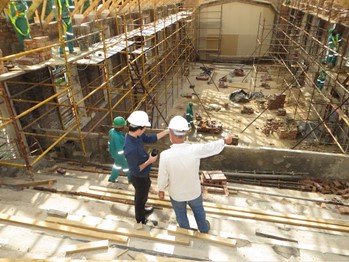In the world of construction, successful project management is nothing short of an art form. It requires a delicate balance of time, cost, and quality management to ensure that projects are completed on schedule, within budget, and up to the highest industry standards. Erik Brogan of Minnesota dives into the intricate strategies that construction professionals employ to achieve these goals and deliver exceptional results.
Thorough Planning and Scheduling
Before ground is even broken, a comprehensive project plan is essential. This blueprint outlines the scope of work, establishes timelines, allocates resources, and defines quality benchmarks. By meticulously scheduling tasks and milestones, project managers create a roadmap that guides the entire construction process.
Risk Assessment and Mitigation
Construction projects inherently come with a degree of uncertainty. Effective project managers conduct thorough risk assessments to identify potential hurdles. By anticipating challenges, they can implement strategies to mitigate risks, whether they be related to weather conditions, material shortages, or unexpected site conditions.
Transparent Communication and Collaboration
Additionally, clear and consistent communication is the backbone of any successful project. Project managers foster an environment of open dialogue among stakeholders, including architects, engineers, contractors, and subcontractors. This ensures that everyone is aligned with the project’s objectives and that any issues are addressed promptly.
Resource Allocation and Management
Optimal resource allocation is crucial for balancing cost and quality. Project managers carefully allocate labor, equipment, and materials to maximize efficiency and productivity. They also monitor resource usage throughout the project, making adjustments as needed to prevent costly overruns.
Quality Control and Assurance
Maintaining high-quality standards is non-negotiable in construction. Project managers implement rigorous quality control processes to monitor workmanship and materials. They conduct inspections, tests, and audits to ensure that the final product meets or exceeds industry standards and client expectations.

Cost Estimation and Budget Management
Accurate cost estimation and budgeting are fundamental to project success. Construction managers meticulously assess all expenses, including labor, materials, equipment, permits, and contingencies. They create detailed budgets and track expenditures throughout the project, identifying and addressing cost overruns promptly.
Adaptability and Problem-Solving
Flexibility is a hallmark of effective project managers. They must be prepared to adapt to unforeseen circumstances, whether it’s a change in design, unexpected weather delays, or supply chain disruptions. Swift problem-solving and decision-making are key to keeping projects on track.
Regulatory Compliance and Permitting
Navigating the complex web of regulations and obtaining the necessary permits is yet another critical aspect. Project managers stay up to date with local building codes, environmental regulations, and permitting processes. Ensuring compliance not only avoids legal issues but also upholds ethical and environmental responsibilities.
Conclusion
Mastering the art of project management in construction demands a comprehensive skill set and a keen understanding of the intricate interplay between time, cost, and quality. By employing these strategies, construction professionals can navigate the complexities of their projects with finesse, ultimately delivering exceptional results that stand the test of time. Balancing the demands of construction projects requires not only technical expertise but also a nuanced approach that values collaboration, adaptability, and unwavering commitment to excellence.
